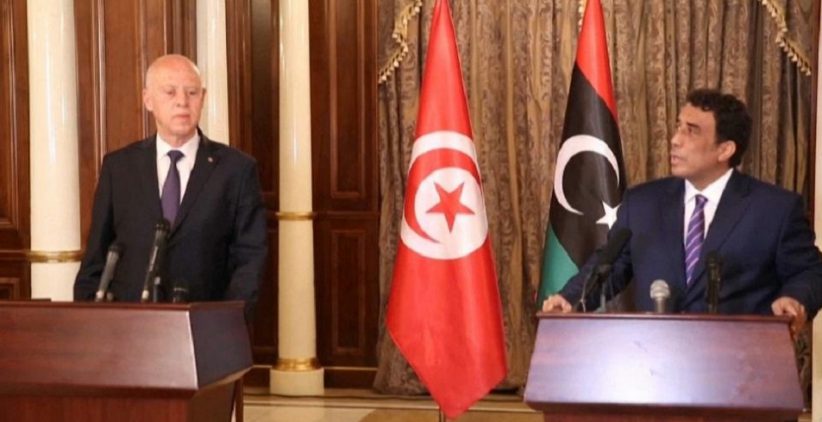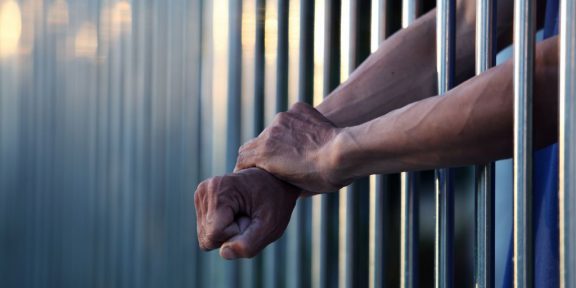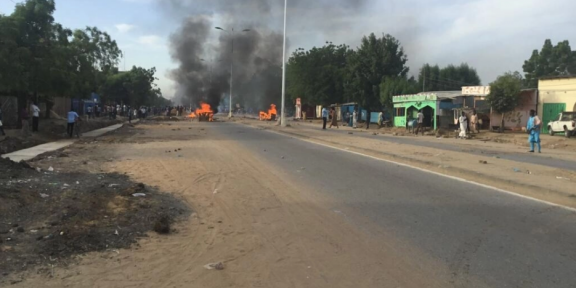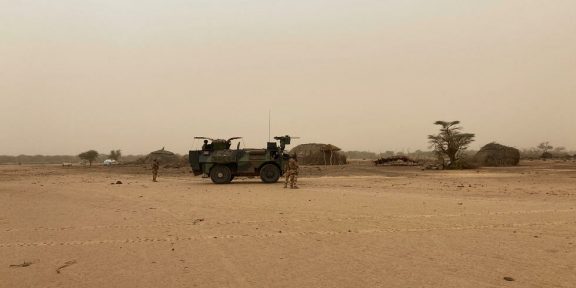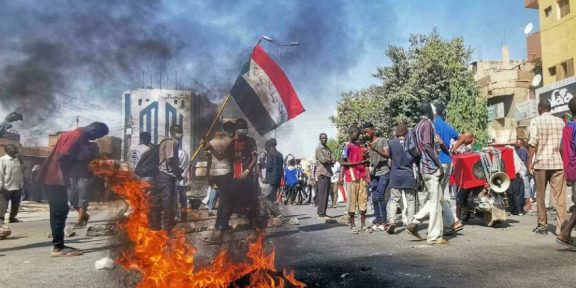Tunisia’s president visits Libya Wednesday for the first such visit between the neighbouring countries since 2012, in a boost for Libya’s new UN-backed administration.
President Kais Saied’s trip aims to show “Tunisia’s support for the democratic process in Libya” following the swearing in on Monday of new interim Prime Minister Abdul Hamid Dbeibah on a pledge to reunite the divided country and lead it to December elections, the president’s office said.
{source}
<blockquote class=”twitter-tweet”><p lang=”fr” dir=”ltr”>Tunisie : le président Kais Saied en visite officielle en Libye <a href=”https://t.co/yL9xjnCtts”>https://t.co/yL9xjnCtts</a></p>— Harrabi Assya (@HarrabiAssya) <a href=”https://twitter.com/HarrabiAssya/status/1372182722916012035?ref_src=twsrc%5Etfw”>March 17, 2021</a></blockquote> <script async src=”https://platform.twitter.com/widgets.js” charset=”utf-8″></script>
{/source}
The visit also aims to “strengthen cooperation between Tunisia and Libya” and to develop “solidarity” for increased “stability and prosperity”, it added.
Tunisia hosted UN-backed talks between representatives of Libya’s warring factions late last year that helped pave the way for the fragile breakthrough.
Before Libya’s descent into chaos following the 2011 overthrow of veteran dictator Moamer Kadhafi in a NATO-backed uprising, the oil-rich country was a major customer for Tunisian farm produce and building materials as well as migrant labour.
The long years of conflict have resulted in prolonged border closures that have hit the volume of business, particularly in the informal trade in consumer goods that is an economic mainstay in border areas.
{source}
<blockquote class=”twitter-tweet”><p lang=”fr” dir=”ltr”>Visite de Kaïs Saïed en <a href=”https://twitter.com/hashtag/Libye?src=hash&ref_src=twsrc%5Etfw”>#Libye</a> : transition politique, relations bilatérales, reconstruction… Ce que le président tunisien va dire aux autorités libyennes <a href=”https://t.co/tI3Ln53Nte”>https://t.co/tI3Ln53Nte</a> <a href=”https://twitter.com/hashtag/Tunisie?src=hash&ref_src=twsrc%5Etfw”>#Tunisie</a></p>— Jeune Afrique (@jeune_afrique) <a href=”https://twitter.com/jeune_afrique/status/1372109697940123648?ref_src=twsrc%5Etfw”>March 17, 2021</a></blockquote> <script async src=”https://platform.twitter.com/widgets.js” charset=”utf-8″></script>
{/source}
Successive Tunisian governments strove to avoid publicly taking sides between Libya’s rival administrations in the east and west that fought themselves to a bloody standstill before making way this week for the new UN-backed unity government led by Dbeibah.
The common front fell apart briefly last year when the current Tunisian president accused the Islamist Ennahda party, which forms the largest bloc in parliament, of being too close to the authorities in western Libya in their Turkish-backed war against eastern-based strongman Khalifa Haftar.
Source: Africanews

